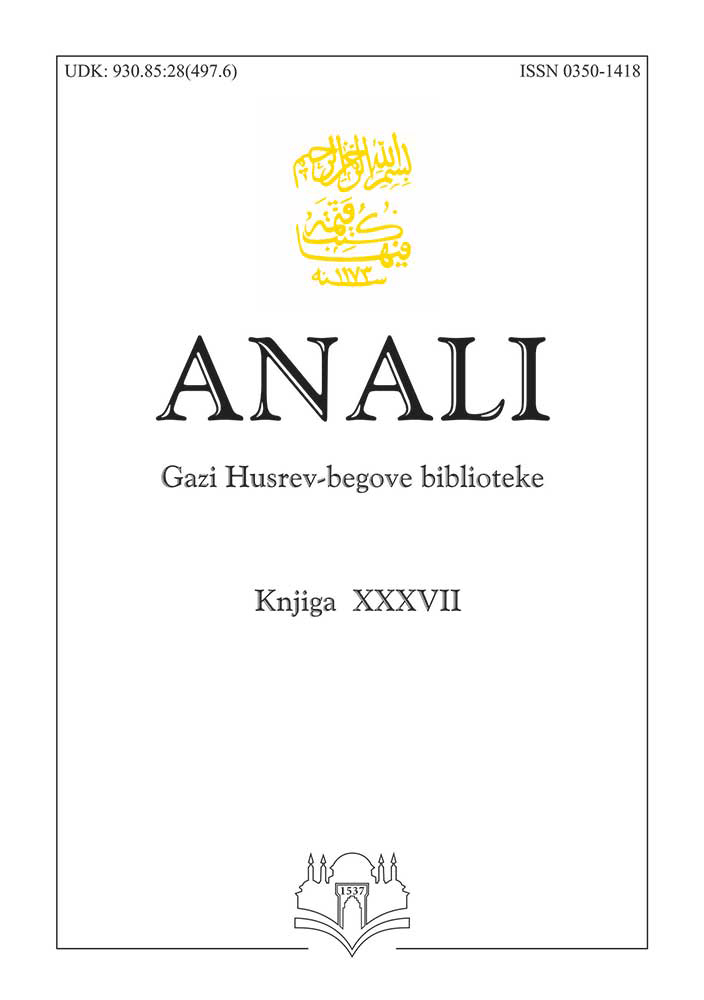Obnovljena muafnama Novog Jajca/Varcar Vakufa iz 1734. godine i ehalija
Novo Jajce/Varcar Wakf: Renewed Muafname of 1734 and Ahali
Author(s): Azra Gadžo-KasumovićSubject(s): Cultural history, Museology & Heritage Studies, Economic history, Local History / Microhistory, Social history, 16th Century, 17th Century, 18th Century, History of Islam
Published by: Gazi Husrev-begova biblioteka
Keywords: Jenidže/Novo Jajce/Varcar Vakuf; renewed muafname; muafiyet disputes; ahali; market day;
Summary/Abstract: The paper deals with the renewed muafiyet of ahali in the kasaba and of re-establishment of a market day as an important need by all of its inhabitants. In addition to being intensively credited by Krzlaraga Mustafa-aga, muafiyet was the second important factor of the development of the kasaba. According to the renewed muafname, as well as according to the manner in which authorities produced documents to solve the issues of tax exemptions and benefits to certain categories of persons, it can be concluded that muafiyet referred to the ahali of the kasaba. It also explains the term ahali that, as related to the mentioned muafiyet, referred to persons who were eligible for and capable of initiating and maintaining the agricultural development of a certain kasaba. The privileges of tax exemption awarded through the first muafname of 1591 to inhabitants of newly established kasaba referred to the inhabitants personally, providing they “revive and urbanize the place”, i.e. the kasaba. However, after the issuance of a renewed muafname, it can be seen that the authorities such as vali and kadi, based on the text of muafiyet, approved privileges to ahali of the kasaba not only for use of wakf land within the limits of stipulations of the first hududname of 1590, but also for their own land out of wakf. For urban development of the kasaba of that time, it was not enough to just establish the center of the town. Because of agriculture as a prevailing industry of the time, cultivation of land was essential regardless of the fact whether it belonged to wakf or not. Muafiyet awarded to the ahali at the time of the establishment of the kasaba, which after expiry of muafname in 1697 and its renewal in 1734, was valid all until 1844. The paper explains another significant decision of 1590 connected with Varcar Vakuf. Although it was determined that the regular market day be set, there was no market day after 1697. After the attack by Austrian army and after displacement of the kasaba population, the market day was not established before 1805 although it was not on Friday as before but on Sunday.
Journal: Anali Gazi Husrev-begove biblioteke
- Issue Year: 2016
- Issue No: 37
- Page Range: 25-42
- Page Count: 17
- Language: Bosnian

